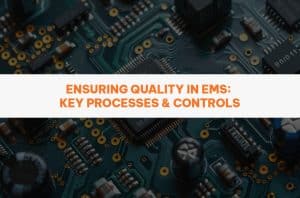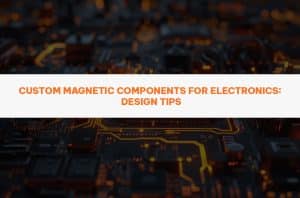Introduction
Vapor phase soldering (VPS) is a highly efficient and precise soldering technique that offers numerous benefits over traditional soldering methods, such as reflow soldering. This method, which uses the condensation of a vaporized liquid to transfer heat to the solder paste, ensures uniform heating and minimal thermal stress on components. As a result, VPS has found applications in various industries. This blog explores the implementation of vapor phase soldering across different sectors and highlights its advantages and specific use cases.
1. Consumer Electronics
Smartphones and Tablets
In the consumer electronics industry, where devices are continually becoming smaller and more powerful, vapor phase soldering is essential. The uniform heating provided by VPS is crucial for soldering fine-pitch components found in smartphones and tablets. This method ensures reliable connections and minimizes the risk of thermal damage to sensitive components.
Wearable Devices
Wearable devices, such as smartwatches and fitness trackers, also benefit from VPS. These devices often contain delicate sensors and microprocessors that require precise and consistent soldering. Vapor phase soldering helps achieve the necessary reliability and performance standards for these compact, high-density assemblies.
2. Automotive Industry
Electronic Control Units (ECUs)
Modern vehicles rely heavily on electronic control units (ECUs) for various functions, including engine management, safety systems, and infotainment. Vapor phase soldering ensures the robust and reliable soldering of these critical components, which must withstand harsh automotive environments, including extreme temperatures and vibrations.
Advanced Driver Assistance Systems (ADAS)
ADAS technologies, such as adaptive cruise control, lane-keeping assistance, and automatic emergency braking, require high-quality electronic assemblies. VPS provides the precision and consistency needed for these safety-critical systems, enhancing their reliability and performance.
3. Aerospace and Defense
Avionics Systems
Avionics systems in aircraft must meet stringent reliability and performance standards. Vapor phase soldering is ideal for assembling these systems due to its ability to produce consistent, high-quality solder joints. The uniform heating reduces the risk of thermal damage to sensitive avionics components, ensuring long-term reliability.
Military Equipment
Military electronics, including communication devices, radar systems, and guidance systems, require robust and durable assemblies. Vapor phase soldering’s ability to create reliable connections under extreme conditions makes it the preferred choice for these applications. The method’s precision also supports the high levels of performance and reliability demanded by defense applications.
4. Medical Devices
Implantable Devices
Implantable medical devices, such as pacemakers and cochlear implants, require extremely reliable and precise soldering to ensure patient safety and device functionality. Vapor phase soldering’s ability to provide consistent and controlled heating is crucial in assembling these life-saving devices.
Diagnostic Equipment
Medical diagnostic equipment, including MRI machines, CT scanners, and blood analyzers, relies on complex electronic assemblies. VPS ensures that these assemblies are produced with high reliability and accuracy, contributing to the overall effectiveness and dependability of diagnostic tools.
5. Telecommunications
Network Infrastructure
Telecommunications equipment, such as base stations, routers, and switches, forms the backbone of global communication networks. These devices require high-performance and reliable electronic assemblies to handle large amounts of data. Vapor phase soldering provides the precision and consistency needed to meet the rigorous demands of telecommunications infrastructure.
5G Technology
The rollout of 5G technology involves the deployment of advanced electronic components that require precise and reliable soldering. Vapor phase soldering ensures the integrity and performance of these components, enabling the seamless operation of 5G networks.
6. Industrial Automation
Robotics
Robotic systems used in industrial automation rely on complex electronic assemblies for control and operation. Vapor phase soldering ensures the reliable and precise soldering of these assemblies, contributing to the overall efficiency and performance of robotic systems.
Sensors and Actuators
Sensors and actuators play a critical role in industrial automation, providing feedback and control for various processes. VPS provides the reliability and accuracy needed for soldering these components, ensuring the seamless operation of automated systems.
Advantages of Vapor Phase Soldering Across Industries
Uniform Heating
One of the primary advantages of vapor phase soldering is its ability to provide uniform heating to the entire assembly. This uniformity reduces the risk of thermal damage and ensures consistent solder joints, which is crucial for high-reliability applications in various industries.
Reduced Thermal Stress
VPS minimizes thermal stress on components by ensuring that the maximum temperature is limited to the boiling point of the vaporized liquid. This feature is particularly important for sensitive components in medical devices, aerospace systems, and consumer electronics.
High-Quality Solder Joints
The precision and control offered by vapor phase soldering result in high-quality solder joints with minimal defects. This quality is essential for industries that demand reliable and long-lasting electronic assemblies, such as automotive, aerospace, and telecommunications.
Flexibility
VPS systems can handle a wide range of component sizes and types, making them suitable for diverse applications across different industries. The ability to create specific soldering profiles for various assemblies enhances the flexibility and efficiency of the manufacturing process.
Conclusion
Roots EMS‘ Vapor phase soldering is a versatile and highly effective soldering method that meets the stringent requirements of various industries. Its ability to provide uniform heating, reduce thermal stress, and produce high-quality solder joints makes it indispensable in the production of consumer electronics, automotive components, aerospace systems, medical devices, telecommunications equipment, and industrial automation systems. As technology continues to evolve, the implementation of vapor phase soldering will remain a key factor in achieving reliable, high-performance electronic assemblies across these industries.


